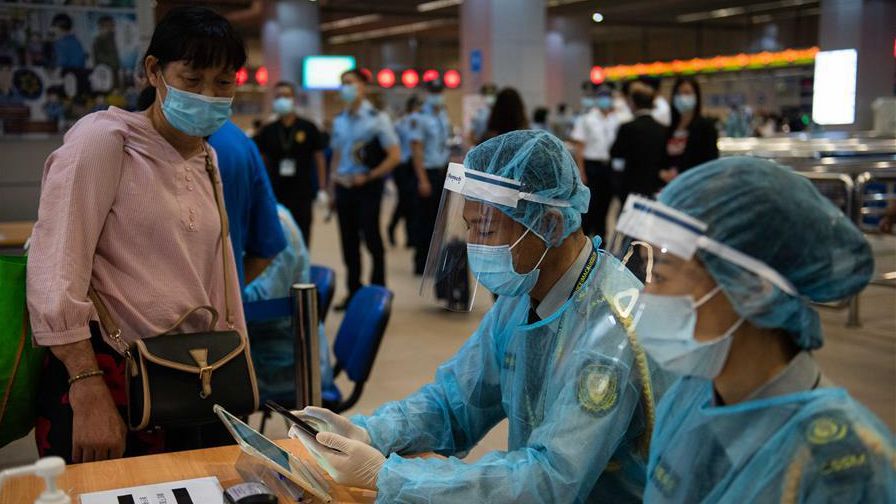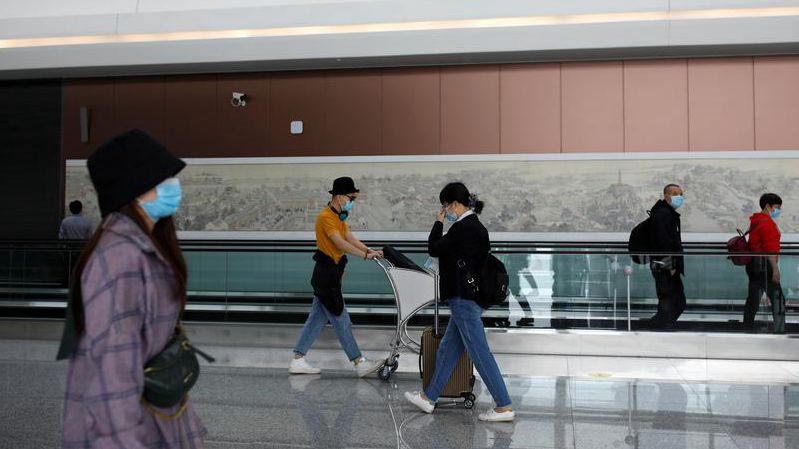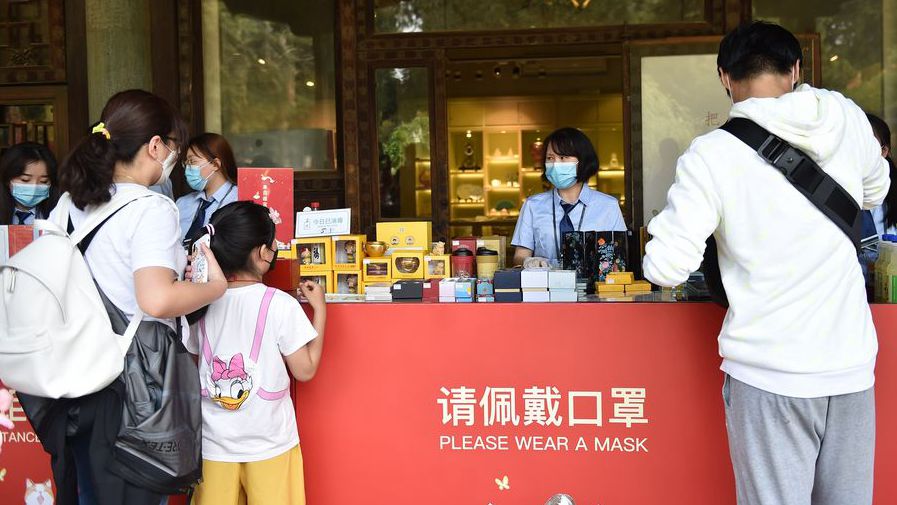
Staff help people register their health QR codes at an entry port in Macao, south China, September 29, 2020. /Xinhua
Staff help people register their health QR codes at an entry port in Macao, south China, September 29, 2020. /Xinhua
Beijing resident Xiu Renjie has not traveled for half a year. But today, he is going to Changsha, a popular city in central China's Hunan Province that has gained traction on social media, to kick off his eight-day holiday.
Then, he is going to Hainan Province in southern China on October 4.
"I haven't tried for this long because of lingering worries over the virus," he said. "I have prepared face masks and hand sanitizers, we still need take a cautious attitude when we enter public places and take public transportation."
Because Mid-Autumn Festival coincides with the National Day holiday in 2020, this year's Golden Week holiday is one day longer than usual, and the eight-day holiday has made Chinese tourists even more eager to go out, as China has almost dispelled the shadow of the COVID-19 epidemic.
Xiu is not alone, he is one of hundreds of millions of travelers in these eight days. China's state railway operator said on Monday that it expects to handle 108 million passenger trips from September 28 to October 8, an average of 9.82 million trips per day.
October 1, China's National Day, will see the peak of passenger flow, with an estimated amount of 13 million trips – setting a new high in the daily average passenger flow on the railways since the COVID-19 outbreak, the railway operator said.

Beijing Daxing International Airport ahead of Chinese National Day holiday, Beijing, China, September 25, 2020. /Reuters
Beijing Daxing International Airport ahead of Chinese National Day holiday, Beijing, China, September 25, 2020. /Reuters
China expects tourism rebound
China expects a significant rebound in domestic travel over the upcoming Golden Week holiday after the COVID-19 epidemic took a toll on the sector for months.
The pent-up demand is fueling optimism the Chinese travel industry has reached a turning point, with hopes the eight-day holiday will supercharge a tentative pickup seen in recent months,
"The demand on tourism that was suppressed for nine months will probably be released during the eight-day Mid-Autumn Festival and National Day holiday season," said online travel platform Trip.com TCOM.O in a statement, estimating that 600 million trips could be made.
Some popular scenic attractions in China, such as the Palace Museum, are already booked up for the holiday.
Hotel and airline bookings made during the week of September 8-15 exceeded those made during the same period last year, Alibaba-backed online travel platform Fliggy said, with hotel bookings for Golden Week up by more than 50 percent.
However, a lot of people's itinerary abroad is hampered due to various quarantine requirements around the world and a dearth of overseas flights.
Tourism industry players in China cautioned that a full recovery is still on the way, and the whole industry is still taking a series of strict epidemic-control measures in fear of a COVID-19 resurgence.

Visitors buy souvenirs at a shop with a coronavirus precaution notice at the Palace Museum in Beijing, capital of China, May 1, 2020. /Xinhua
Visitors buy souvenirs at a shop with a coronavirus precaution notice at the Palace Museum in Beijing, capital of China, May 1, 2020. /Xinhua
Expert advises caution remains
Despite a "travel carnival" being likely to remerge during the Golden Week holidays, the expert reminded people should take precautions against the epidemic during the trip.
Wu Zunyou, chief epidemiologist at the Chinese Center for Disease Control and Prevention, told a press conference on Tuesday that except the preparation of personal protective equipment, it would be better to do a physical assessment of yourself and the companion. If you have symptoms of a cold, shorten the trip.
The COVID-19 resurgence in many countries shows that once countries let their guard down, the virus will find opportunities to infect people, regardless of a community's prior success. In the coming autumn and winter, the public should keep their awareness of epidemic prevention and control, with masks a standard part of their travel, Wu added.
In addition, people still need to show health QR codes that record their recent whereabouts, which have played an irreplaceable role in helping China's fight against the virus. Green health QR codes are mandatory for entering public places and using public transportation, and some hotels are asking guests to get coronavirus tests before arriving.
(With input from Reuters)
Related reading:
No booking, no travel: Travel tips for post-pandemic Golden Week